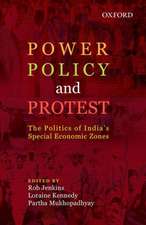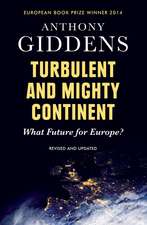British Protectionism and the International Economy: Overseas Commercial Policy in the 1930s
Autor Tim Roothen Limba Engleză Hardback – 3 mar 1993
| Toate formatele și edițiile | Preț | Express |
|---|---|---|
| Paperback (1) | 407.69 lei 6-8 săpt. | |
| Cambridge University Press – 17 apr 2002 | 407.69 lei 6-8 săpt. | |
| Hardback (1) | 758.22 lei 6-8 săpt. | |
| Cambridge University Press – 3 mar 1993 | 758.22 lei 6-8 săpt. |
Preț: 758.22 lei
Preț vechi: 881.64 lei
-14% Nou
Puncte Express: 1137
Preț estimativ în valută:
145.08€ • 151.89$ • 120.05£
145.08€ • 151.89$ • 120.05£
Carte tipărită la comandă
Livrare economică 05-19 aprilie
Preluare comenzi: 021 569.72.76
Specificații
ISBN-13: 9780521416085
ISBN-10: 0521416086
Pagini: 374
Ilustrații: 41 tables
Dimensiuni: 157 x 234 x 26 mm
Greutate: 0.7 kg
Ediția:New.
Editura: Cambridge University Press
Colecția Cambridge University Press
Locul publicării:Cambridge, United Kingdom
ISBN-10: 0521416086
Pagini: 374
Ilustrații: 41 tables
Dimensiuni: 157 x 234 x 26 mm
Greutate: 0.7 kg
Ediția:New.
Editura: Cambridge University Press
Colecția Cambridge University Press
Locul publicării:Cambridge, United Kingdom
Cuprins
1. Britain's international economic position in the 1920s; 2. The political economy of protectionism; 3. Imperial preference and the Ottawa conference; 4. The Scandinavian negotiations: formulation of policy; 5. Completion of the first phase of negotiations: Scandinavia, Germany and Argentina; 6. The World Economic Conference, Finland and Japanese competition; 7. The Baltic states and Poland; 8. British agricultural policy and imports during the 1930s; 9. British exports to the trade agreement countries; 10. Appeasing Germany and the United States; 11. Some general conclusions.
Recenzii
"...the study makes a substantial contribution to our understanding of the 1930s." American Historical Review
"This thorough account of the complexities and frustration of bilateral trade negotiations in conditions of widespread unemployment is a moral tale for policymakers and a valuable contribution to the history of international economic policy." Journal of Economic History
"...a most learned book, performing a task which had to be done at some time. Specialists will be most grateful for it, and others will gain some insight into the narrow world of the 1930's." Sidney Pollard, The International History Review
"This thorough account of the complexities and frustration of bilateral trade negotiations in conditions of widespread unemployment is a moral tale for policymakers and a valuable contribution to the history of international economic policy." Journal of Economic History
"...a most learned book, performing a task which had to be done at some time. Specialists will be most grateful for it, and others will gain some insight into the narrow world of the 1930's." Sidney Pollard, The International History Review
Descriere
This 2003 book examines the forces behind the British abandonment of free trade in the 1930s.














